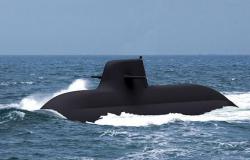2
Friuli Venezia Giulia excels at a national level in smart specialization, i.e. the strategy introduced in 2013 with a European regulation to maximize the impact of investments dedicated to research, technological development and innovation, in a manner consistent with the specificities of the individual territories. This was highlighted by the research office of Confindustria Udine, which reworked the relevant Istat indicators. In our region, the smart specialization strategy sector represents 32% of industrial and service companies and 54% of employees, 64% of the economy in terms of added value and 85% of goods exports . Of these companies, 85% make high-intensity investments in projects related to research and development, 63% in digitalization and 65% in human capital. The national smart specialization strategy identifies five priority thematic areas, then divided into 12 smart specialization areas, which identify fundamental production areas of the Italian productive fabric. In the ‘smart factory’ area, Friuli Venezia Giulia occupies second place in Italy, with a contribution from companies, in terms of added value, of 36.2%, second only to the 38.5 of Lazio. The maritime economy sector sees companies active in Friuli Venezia Giulia in first place, with a regional incidence of companies of 5.2%. We also occupy second and fourth positions respectively in the Energy and Sustainable Mobility areas of specialization. Finally, we are on the second step of the podium, after Piedmont, for shares of added value in the Made in Italy area.
“The regional industrial policy measures, starting with RilancImpresa and then SviluppoImpresa combined with the traditional good spending capacity of European funds in our region – comments the general director of Confindustria Udine, Michele Nencioni – produce good results. These data confirm this and provide a snapshot of an industrial system in the area which, for its part, has committed itself to evolving and competing, with highly respectable results on the national scene. Today, we have a transformed local production fabric: more innovative, resilient and sustainable. It is no coincidence that it has been able to resist the repeated waves of crisis in recent years. The double transition, digital and environmental – concludes Nencioni – requires manufacturing, which remains the backbone of our economy, to continue on this path”.





